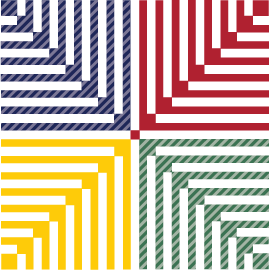is a live storytelling event that is new to this year’s festival. It is the launching point for a new initiative called Palestinians Podcast. We chat with Nadia Abuelezam, a Palestinian-American who is a Research Fellow at the Harvard School of Public Health as well as the Founder of Palestinians Podcast, to learn more. BPFF: How did you get the idea to start Palestinians Podcast? NA: I have a long commute to work every day. I listen to a lot of podcasts. On average, I listen to 2-3 hours a day of various podcasts. I very quickly got into the world of podcasting, and it also has made me appreciate the importance of the narrative. The oral narrative, and the narrative of being spoken to and hearing what someone is saying, I think is very powerful. And I am not sure that everyone has heard the Palestinian narrative. I think that podcasting opens up the audience a bit, if we can be featured on national outlets, we can open up the dialogue with people who have never heard our story, and don’t understand the full situation. So that was really where this idea came from. And just hearing how powerful stories are—some stories moved me to tears on the train. I think that we as Palestinians have a gift of storytelling, and we have a wealth of really powerful stories. BPFF: Why do you think Palestinian stories are powerful? NA: There are so many themes. Isolation, resistance, a lost home and not being able to return home—I think a lot of people struggle with these themes in everyday life, and they don’t realize that this is literally people’s lives. We also have highly emotional themes—we value family, motherhood, and the familial structure. It is present in a lot of other cultures—those love scenes and family scenes and family structure scenes are things that people long for in today’s world. I think these are particularly powerful themes. Because we interact with other Palestinians, we think that everyone knows what we are going through. We just assume that everyone knows the story of the Palestinian struggle and the need for resistance. But in reality, most people have literally no idea. That becomes very clear to me when I tell my very educated colleagues at work about my struggles to enter Palestine with my American passport. People are simply not aware. Palestinians are de-humanized in the media; they are merely a statistic. There is no human aspect to any story about Palestine in the media. What I really wanted to do with the podcast is to bring the humanity and human nature and human emotion back into our stories. BPFF: What is your own Palestinian story? NA: I’m a Palestinian American, born in the United States. My parents were both Palestinian refugees. My dad grew up in a refugee camp in Lebanon but is originally from Ramleh. My mom grew up in Kuwait but is originally from Nablus (Rafidia). BPFF: How are you operationalizing this idea of Palestinians Podcast? NA: We are still at the very beginning stages. I would like to emphasize that I am looking for help and people to volunteer with whatever skills they can offer. We have recorded 15 stories from people in various parts of the world with various themes. We’ve been spending most of our time trying to organize the live event. The live event stories will be the first that will be released for the podcast. We are still working on the audio engineering for that, getting it into the proper format to air and to start releasing on iTunes and Sound Cloud and all the other venues. So it is still very much in the initial stages. In fact, we are looking for help with audio engineering, with a web site, and with social media. If you are interested in helping with any of these aspects of the podcast, please contact me! BPFF: You are offering coaching to folks who are doing the live show. Can you describe what that entails? What type of support? NA: We make sure each story has a good narrative arc, properly describes all aspects of the story the storyteller is trying to tell, and has tension. We always offer coaching and support. BPFF: Are you still looking for more stories? What kind of stories, and from whom? NA: We’re always looking for more stories! We are looking for stories that provoke any type of emotion: joy, love, sadness, or struggle. Everyone has a story, and we’re here to help you develop your story to be as compelling as possible for a general audience! BPFF: How do you intend to take these podcasts out into mainstream media so they reach a broader audience? NA: Mainstream podcasts and radio shows. We’ll do our best to send our best episodes to these shows and hope for a feature. We’d also like to focus our social media efforts to ensure that we are reaching a broad audience! BPFF: What is your ultimate vision for Palestinians Podcast… where would you like it to go? NA: We want Palestinians Podcast to be a venue through which Palestinians can be given a voice! We also want this to be a community engagement project. We want listeners to be encouraged to create their own stories, get their kids and teens involved, and record their own segments. We want to feature stories that mean a great deal to our audience. Ultimately, we want this to be a well-oiled machine that is giving Palestinians a voice in mainstream media. Catch the launch show for the new Palestinians Podcast, on October 24, 2015 at Warehouse XI in Somerville. Cover charge includes storytelling, live music, and appetizers. 


